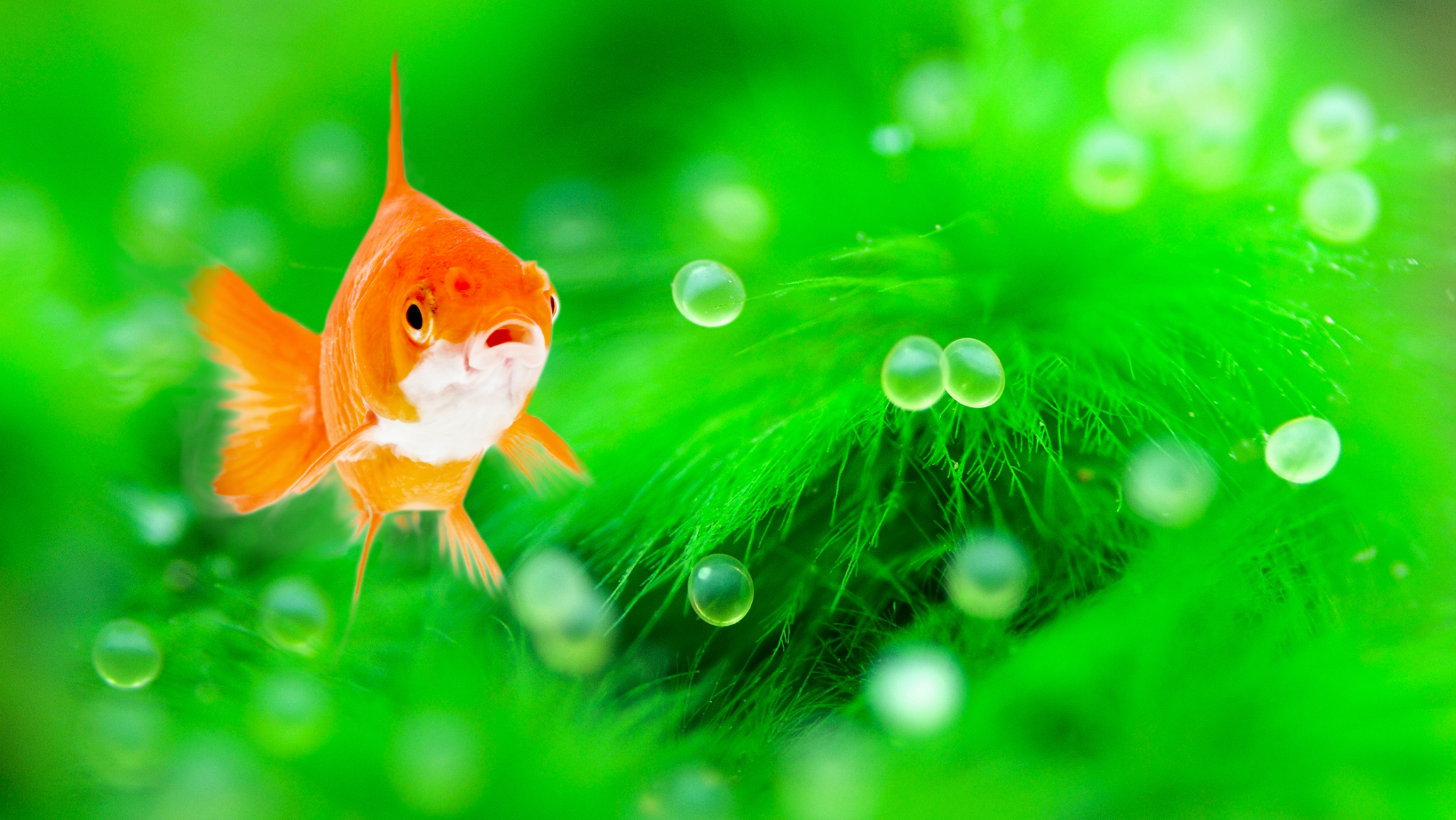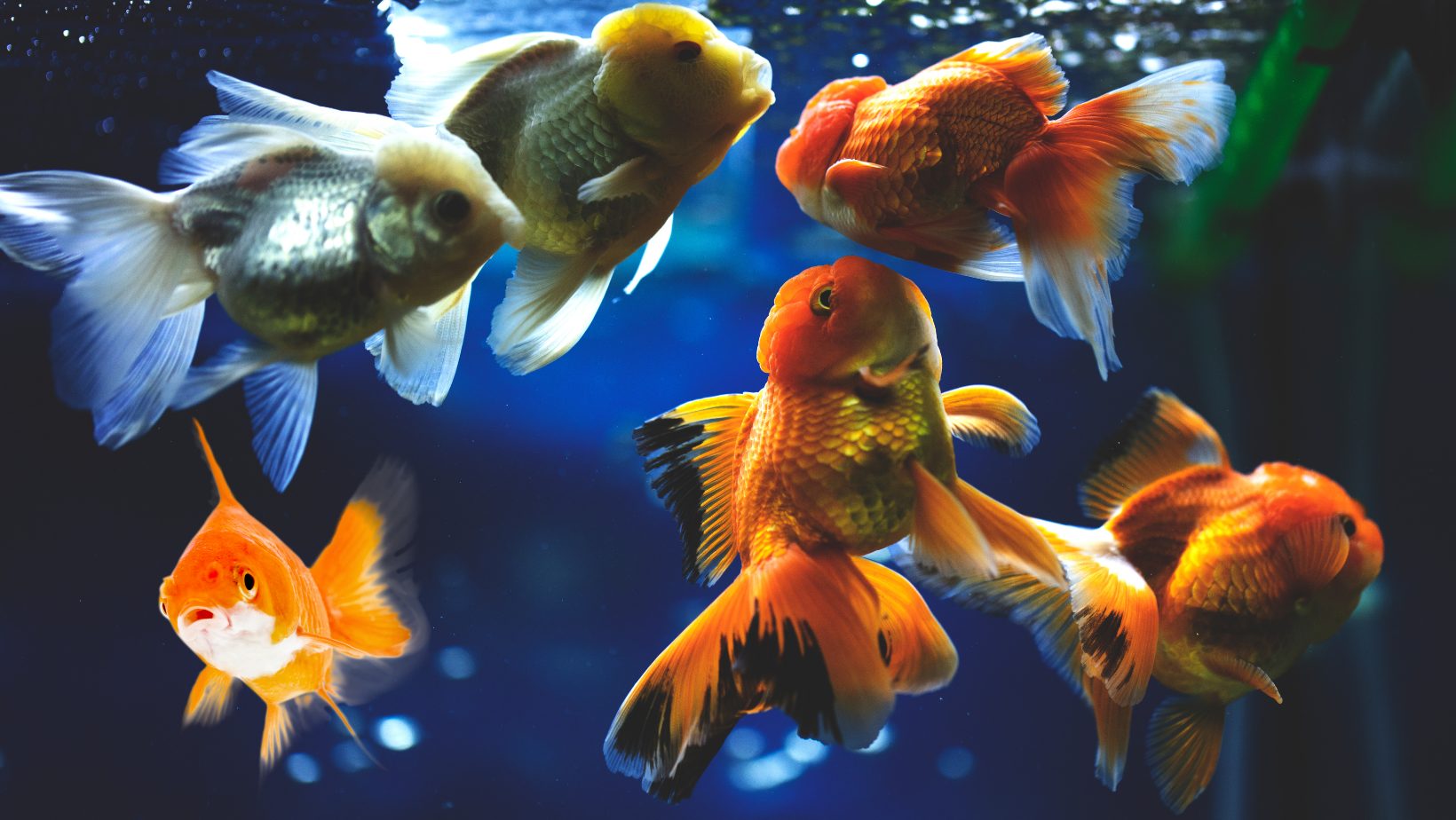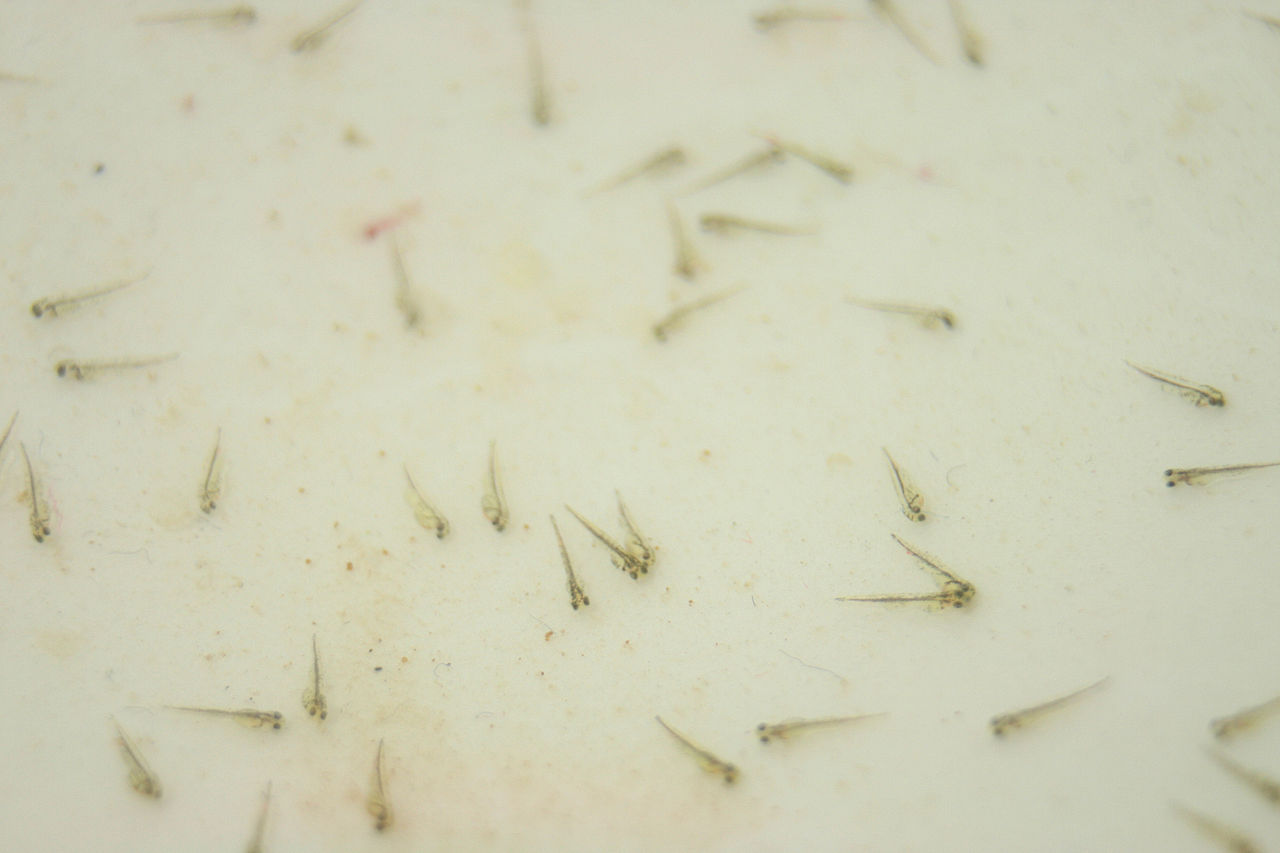goldfish gestation period:
How Long Does it Last?
People often want to know..."Just how long does the goldfish gestation period last?"
This article will help give you all the pertinent information.

Goldfish are among the most popular pet fish all over the globe because of their vibrant colors and elegant movements. For years, they have captured the attention and affection of fish enthusiasts. However, a lot of individuals are interested in the goldfish gestation period and are inquisitive about how long goldfish can maintain pregnancies. We'll delve into the intriguing realm of goldfish reproduction and discuss their gestation time in this article.
Goldfish, or Carassius auratus, are freshwater fish that are members of the Cyprinidae family. They are East Asian in origin, and over years of meticulous breeding, a vast range of shapes and colors have been produced. Aquarists often breed goldfish, and effective breeding depends on knowing the gestation period.
Goldfish Gestation Period:
They don't get pregnant - they spawn!
Contrary to mammals, goldfish don't get pregnant. Instead, they take part in spawning, a reproductive process. The female fish releases her eggs during spawning, and the male fish fertilizes those eggs. By using external fertilization, which involves the male dispersing sperm into the water and the female laying eggs, goldfish are able to breed.
The duration of the day and water temperature are two environmental elements that might have an impact on the goldfish gestation period. Indeed, it’s the appropriate circumstances that allow goldfish to begin reproducing.
In order to encourage the discharge of eggs, the male goldfish will pursue the female and probe her belly at this period. This kind of conduct is referred to as "chasing and nudging."
The male goldfish will swim near to the female and discharge sperm into the water as soon as the female releases her eggs. The eggs will subsequently be fertilized by the discharged sperm.
Due to their stickiness, goldfish eggs will attach to a variety of surfaces, including aquarium plants and ornaments. In a single spawning session, the female may deposit hundreds or even thousands of eggs.

Goldfish Gestation Period:
Incubation Followed by Fertilization
A period of incubation will follow fertilization before the eggs hatch. The time it takes to complete this procedure might vary based on a variety of factors, including the temperature of the water. In 48 to 72 hours, goldfish eggs usually hatch, however it sometimes takes longer if the water is very chilly. The hatching process tends to go more quickly at higher temperatures.
It is essential to provide the developing eggs with an appropriate environment throughout the incubation phase. To avoid the buildup of trash and material that may damage the delicate eggs, the water quality has to be maintained, and effective filtering is required. To stop fungus from growing on the eggs, some aquarists additionally use fungicides or other treatments.
The goldfish eggs will develop into baby fish called fry. The fry's development in its early stages depends on the nutrients provided by their yolk sacs since they are such tiny, sensitive animals. They must be provided a unique diet that is appropriate for their age and size because as they develop, their nutritional needs will alter.
The fry will go through many phases of life, and several elements, such as temperature, diet, and genetics, will have an impact on how rapidly they develop. In a few months, goldfish fry normally grow to juvenile size, and as they age, they continue to develop and alter. Remember that not all goldfish fry will grow since they face a variety of obstacles in their surroundings.

Goldfish Gestation Period:
Not Your Typical Pregnancy!
So, unlike mammals, goldfish do not go through a typical pregnancy. As previously mentioned, they spawn instead, a procedure when the female releases eggs and the male externally fertilizes them, to generate progeny. The gestation period describes the interval between fertilization and hatching in goldfish eggs.
In 48 to 72 hours, goldfish eggs normally hatch, depending on factors like water temperature. To guarantee the survival and development of the eggs and fry, proper care must be taken. For aquarists who are enthusiastic about these beautiful fish, raising goldfish may be a satisfying and fun endeavor.
Careful planning and preparation are necessary while producing goldfish. It is crucial to make sure that the breeding pond or tank offers the best circumstances for the spawning process.
Maintaining suitable water quality, temperature, and lighting conditions is a part of this. Providing the female goldfish with appropriate hiding spots or spawning grounds may also boost the likelihood of fertile offspring.
Special attention must be given to feeding and caring for the fry after the eggs have hatched and they have emerged. Due to their tiny size and vulnerability, goldfish fry need a food that is suitable for their age and growth stage.
The fry may first be given crushed flakes or commercial fry meals, and as they develop, their diet may be progressively changed to include bigger food particles.
To ensure that the fry are growing and developing appropriately throughout their early phases, it is crucial to keep a constant eye on them. For their health and wellbeing, regular water changes and the maintenance of adequate water quality are crucial.
Remember that goldfish fry may display a variety of colors and patterns, and that their ultimate look might not be fully apparent until they are adults.
The fry will go through a variety of stages as it grows, and throughout these periods its scales and fins will expand. Some kinds of goldfish, including fancy goldfish, may change their body forms and acquire distinctive traits as they become older. With a balanced food and enough room to develop, the fish's general health and beauty will improve.
As a result, goldfish do not go through the pregnancy process. Instead, they reproduce via spawning, in which the male fertilizes the eggs externally after the female releases the eggs. The gestation period is the amount of time that passes between fertilization and hatching in goldfish eggs. For the eggs to live and develop into healthy fry, regular care and maintenance are required.
Raising goldfish may be a fulfilling and exciting activity since it allows aquarists to see the amazing transformation from fish egg to adult. Successful goldfish reproduction is possible with the correct information and care, which heightens our admiration for these alluring animals.
Read more on Goldfish on this site...
Read more on the goldfish gestation period here...